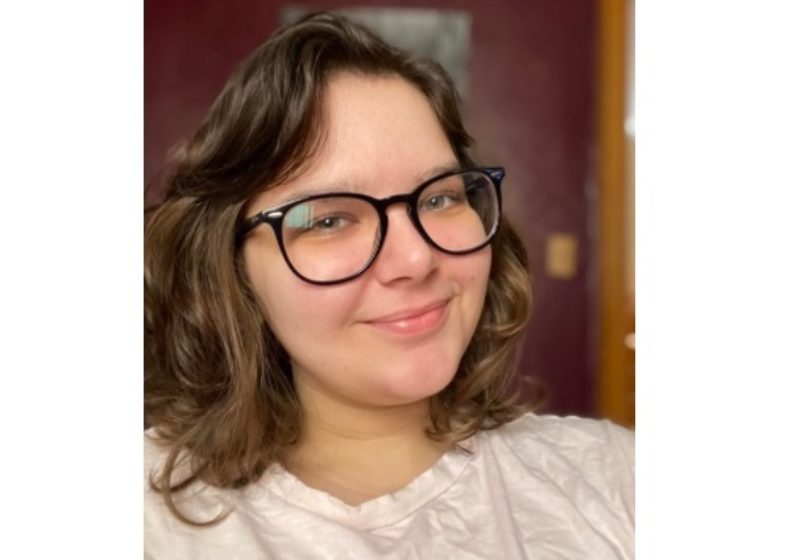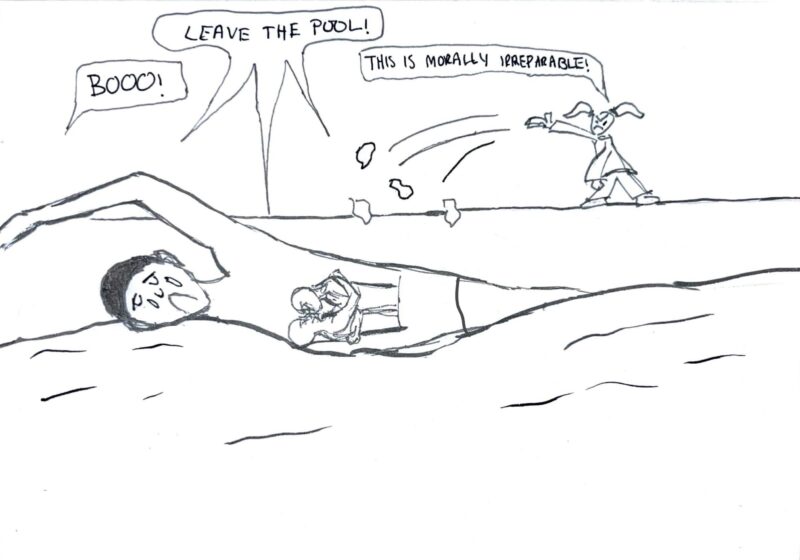From May to August, while most UR students were enjoying their time off from classes, Nicole Sammartino spent her summers studying million dollar math problems. “They look so easy, but they’re actually very difficult,” she said.
Sammartino is currently a Take 5 Scholar who will be studying conservation biology, focusing on the “Extinction of Species from the Dinosaurs to Today.” After transferring to UR from Villanova University, Nicole switched her mathematics minor to a major. “Sometimes, math students are afraid of hard science, while biology students tend to be afraid of math, so I want to explore both.”
Last summer, Sammartino worked as a research intern through UR’s Department of Mathematics under Dr. Alex Iosevich and Professor Ayla Gafni. The program, called “Grad STEM For All,” focuses on mentoring students from the Western New York area to pursue advanced degrees in mathematics and statistics. For the first two weeks, students sit in for a series of lectures which are meant to be a preview of graduate level mathematics and statistics coursework. For the remainder of the summer, students would work with their mentors to tackle complex problems. During her time there, Sammartino worked on problems involving combinatorics and integer partitions. Her project was to extend a derived formula, where she was determined to discover the different ways in which integers could be divided. “For the number four, it can be partitioned into four ones or two and two, and so on. My formula was determining that certain even integers can be just partitioned a certain way, and I was trying to [broaden] it into partitions of three,” Sammartino said.
When asked about obstacles, she thought back to her summer internship. “There were some points in the lecture series and the [professor] would describe a set of proofs that I just could not follow in the slightest,” Sammartino said.
Collaboration and engagement were encouraged, so Sammartino diced out her thoughts with some of the classmates to help get past any content misunderstandings. “People are here to help you, and they’re here for no other reason than they like math.”
After the lecture series, she worked on her project and tackled complex “unsolved math problems” that can be found online. One of the problems she worked on was the “magic square of squares,” a 3×3 square of numbers such that all the rows, columns, and diagonals sum to the same number, and all of the entries are perfect squares. The challenge was to find a square or prove that one cannot exist. “Most research in mathematics is scribbling on a whiteboard and banging your head in frustration.”
When asked about her favorite moments, Sammartino laughed and recalled a time in Carlson Library. “I was staring at a white board and I thought, ‘What if I try this set of numbers and add them first?’ And I did, and it worked! And you always think [you] messed up somewhere, but no, this was right!”
Sammartino encourages undergraduates, especially those majoring in mathematics, to find research opportunities within the department. “Reach out to a professor or faculty member that is working on something that you’re interested in or apply to an REU (Research Experiences for Undergraduates).”
When she’s not deriving formulas or playing with functions, she is an active member of “No Jackets Required,” a music group on campus, and is also part of the music interest floor. After her time at UR, Sammartino plans to attend graduate school, where she can continue to wrestle with the thought-provoking questions and problems that arise out of mathematics. At the end of the day, she said, her philosophy is: “Do the thing that’s scary! Do it anyway, and you’ll be glad you did.”





